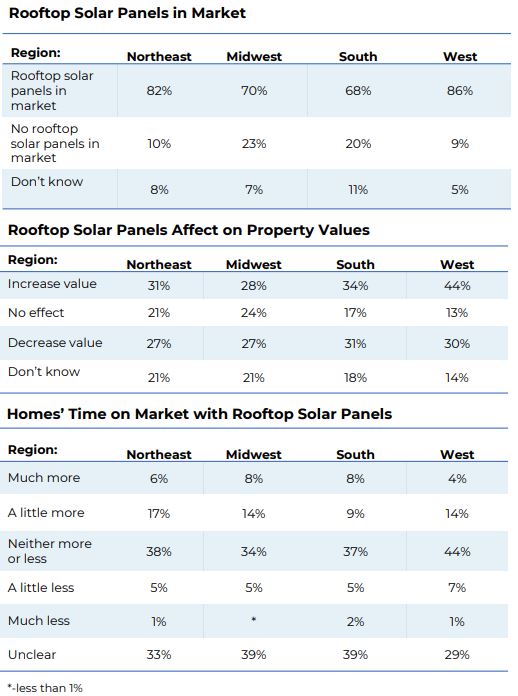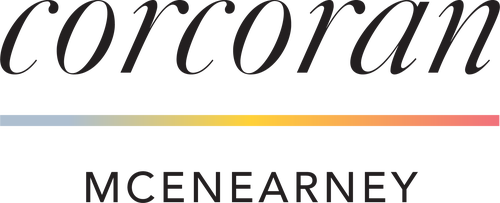We know solar panels are increasingly being added to properties to cut down on energy costs and reduce emissions from other heating sources, but does that translate into value for homeowners?
A reader of The McEnearney Blog recently asked us a question about the resale value for homes with solar panels. Did it help, hurt or have no impact at all?
It wasn’t as easy a question to answer as we thought.
When we last addressed the topic of solar panels in 2020, it was a topic garnering a lot of discussion but not a lot of clarity about what impact it had in the housing market. And while there has been plenty of homeowner education about other popular green tech in properties – such as energy-efficient appliances, sustainable construction material, improved insulation – the insight on solar panels remains clouded as to what that means in actual dollars for home value.
Each year the National Association of Realtors® releases a report on sustainability issues facing the real estate industry. The 2023 REALTORS® and Sustainability Report – Residential was released in May and showed that a majority (63%) of agents and brokers said promoting green technology in listings is “very” or “somewhat” important.
When it comes specifically to solar’s value to a home, 34% (a 2-point drop from 2022) said properties with solar panels increased the perceived property value, compared to 17% who said it decreased value and 29% that said they had no effect (19% said they didn’t know the impact on value). Also, 38% of agents and brokers said that days on market was neither longer nor shorter for properties with solar panels and 37% believed the difference in time on the market due to the solar panels was unclear.
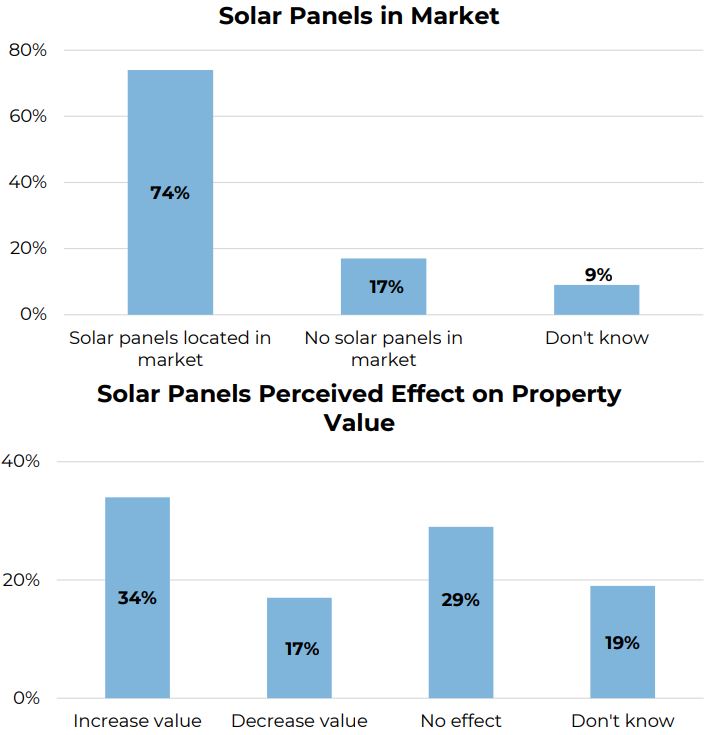
The green home features that Realtors® believed were most important to clients include windows, doors and siding (39%); proximity to frequently visited places (37%); a comfortable living space (37%); and a home’s utility bills and operating costs (25%). Solar panels don’t make the cut of top features cited.
However, of the top five (out of 12) sustainability issues facing their markets, four were questions about solar panels with most agents and brokers citing the need to understand how solar panels impact a transaction (35%), understanding lending options for energy upgrades or solar installations (33%) valuation of solar panels on homes (32%) and the lack of MLS data about home performance and/or solar installations (25%).
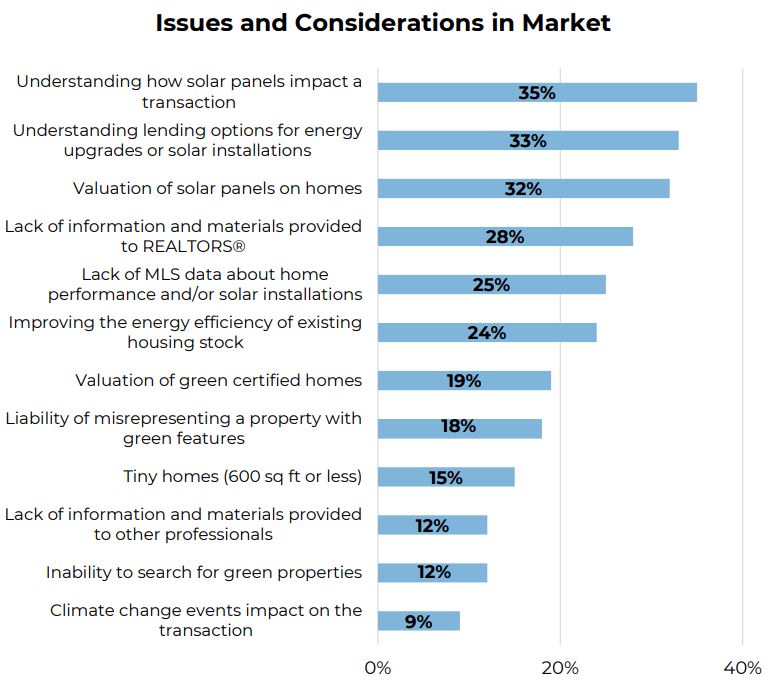
In short, there are still a lot of questions about how solar panels are impacting home values and for a feature that can cost anywhere from $16,000-$23,000 to install. So, we asked some of our McEnearney Associates to tell us about their experience with solar panels in the Virginia, Maryland and DC markets.
Christine Robinson works in Virginia and said consumer education will go a long way to having homeowners experiment with solar technology. When her clients finally found a home that fit their needs, it came with solar panels and also with a lien against the property for the solar panels. The buyers didn’t want to assume the loan for the panels so the sellers had to pay it off before closing. And the listing agent wasn’t knowledgeable about how the solar panels worked so it was up to the buyers to educate themselves about the pros & cons.
Several years ago, even Robinson’s client who is a LEED professional with a background in green technology found it difficult to get clarity on how to get solar installed with new construction, and even harder to get information about solar installations in existing homes.
“I feel strongly that consumers want this type of product but it’s more involved than just dropping panels onto the home,” Robinson adds, running through a list of considerations to keep in mind.
“What upgrades may I have to consider for my home installation? What are the rules in my state? How will it affect my insurance? What safety precautions regarding energy storage, battery back-up, fire suppression, and local utilities do I have to consider?”
Sometimes there are issues with solar panels that have nothing to do with energy supply. Jillian Keck Hogan works in all three jurisdictions and said most owners are indifferent as to whether the panels added value to their home, they installed them for personal reasons. However, the results aren’t always positive.
“We just listed a house for sale/rent in DC that had solar panels and during the listing process we discovered that the installation had caused damage to the roof and led to water damage during rain storms,” Hogan shared. “The company was good at coming out for repairs but it still doesn’t feel like it was contributing to the home in a positive way besides the advantage of a low electric bill and a potential positive environmental impact.”
And for some buyers, it’s simply a no-go. Bob Shaffer, an agent who works in DC and Maryland, has had buyer clients who were definitely “turned off” by solar panels (no pun intended!) “My clients do not take a liking to solar panels and avoid homes with them, even if there were other elements in a home that they liked,” he said.
Some other tips from agents:
- Pay for the upgrades on solar panel roof installation. Just like any home improvement project, there are upsells that will add extra costs but are worth it in the long run. For example, spring for the barriers that will prevent animals from nesting under or damaging solar connections.
- Be sure to check for tax incentives regarding solar or green technology, including those in your local jurisdiction
- Check out this recent segment on WAMU’s 1A radio program that discussed the Inflation Reduction Act and solar energy incentives.
